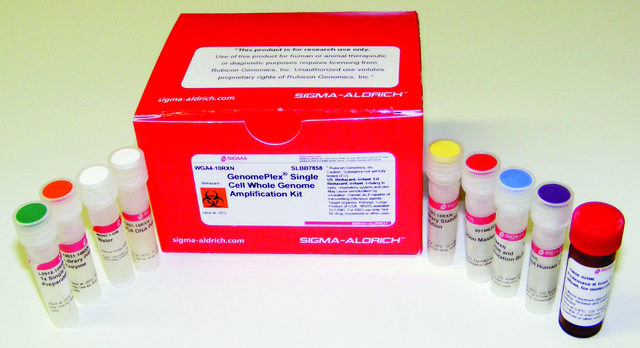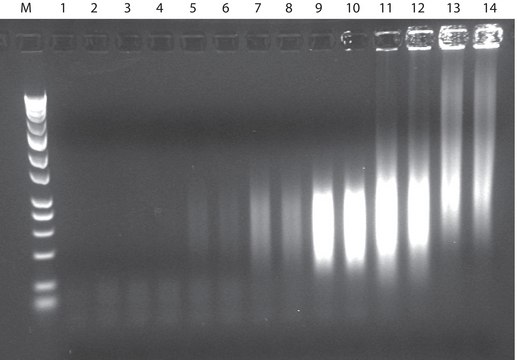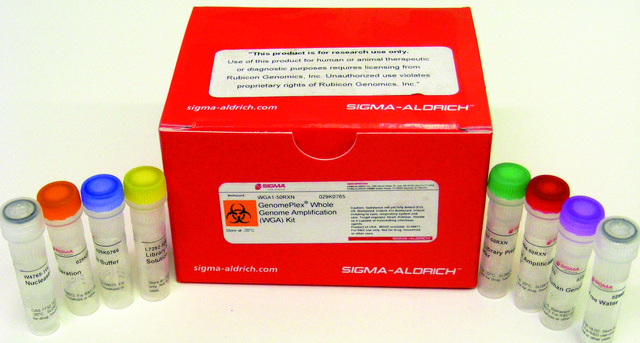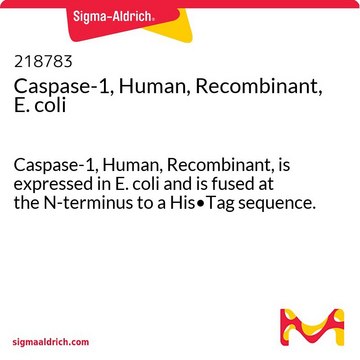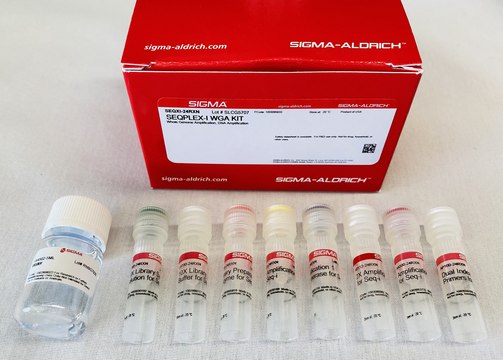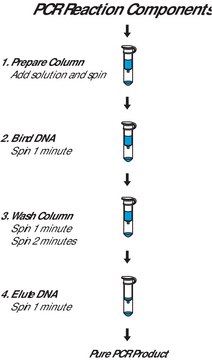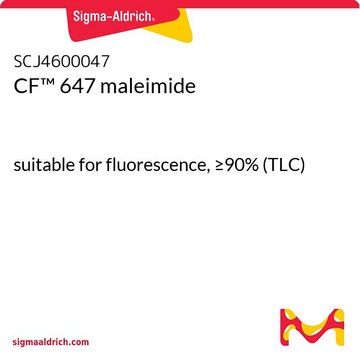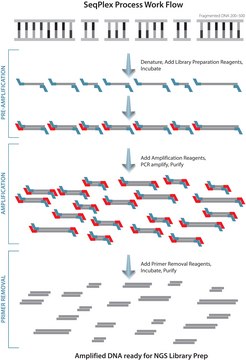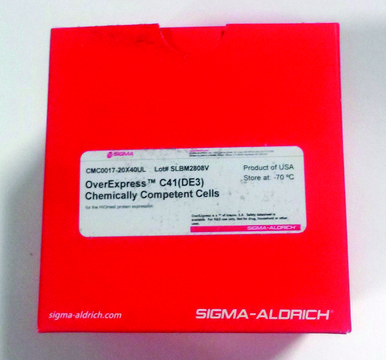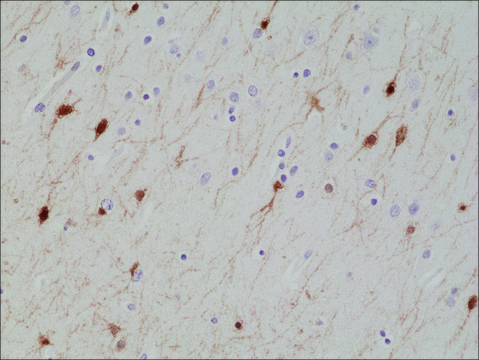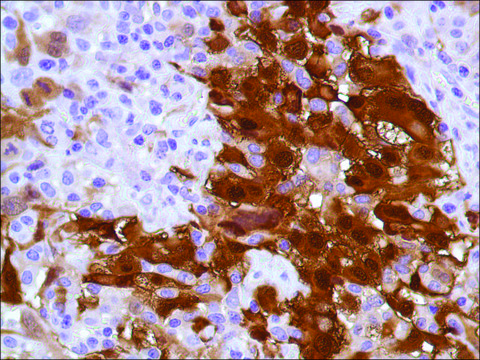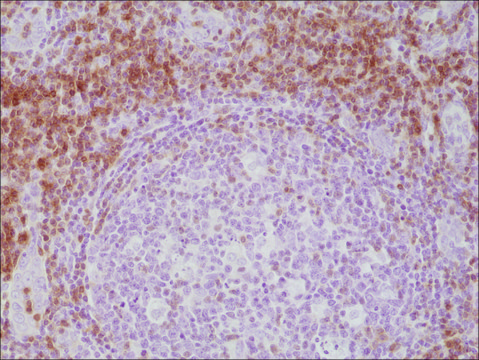WGA3
GenomePlex® WGA Reamplification Kit
Reamplification of WGA product with minimal bias
Synonym(s):
GenomePlex® whole genome amplification reamplification kit, Whole genome reamplification kit
About This Item
Recommended Products
Related Categories
1 of 4
This Item | SAB5500031 | SAB5600151 | SAB5600130 |
|---|---|---|---|
| clone RM324, monoclonal, recombinant monoclonal | clone SP13, monoclonal | clone RM344, monoclonal, recombinant monoclonal | clone RM314, monoclonal, recombinant monoclonal |
| species reactivity rat, mouse | species reactivity human (tested) | species reactivity human | species reactivity human |
| antibody form purified immunoglobulin | antibody form tissue culture supernatant | antibody form purified immunoglobulin | antibody form purified immunoglobulin |
| Gene Information mouse ... Calb2(12308) | Gene Information human ... CALB2(794) | Gene Information human ... CD3E(916) | Gene Information human ... CD5(921) |
| storage temp. −20°C | storage temp. 2-8°C | storage temp. −20°C | storage temp. −20°C |
| isotype IgG | isotype IgG | isotype IgG | isotype IgG |
General description
Application
Other Notes
Legal Information
Kit Components Only
- Deoxynucleotide Mix, 10 mM
Kit Components Also Available Separately
- D7295Deoxynucleotide Mix, 10 mM, Molecular Biology Reagent .2 mL
related product
signalword
Danger
hcodes
pcodes
Hazard Classifications
Resp. Sens. 1
Storage Class
12 - Non Combustible Liquids
flash_point_f
Not applicable
flash_point_c
Not applicable
Choose from one of the most recent versions:
Already Own This Product?
Find documentation for the products that you have recently purchased in the Document Library.
Our team of scientists has experience in all areas of research including Life Science, Material Science, Chemical Synthesis, Chromatography, Analytical and many others.
Contact Technical Service